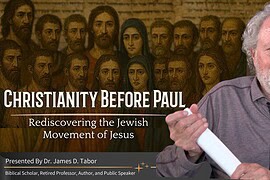The New Testament has been the most influential collection of documents in history. Taken by both commoners and those in power as the inspired and infallible “Word of God,” and interpreted ofttimes outside its historical context, its fateful influence has often emerged from single passages with far-ranging consequences:
The women should keep silent in the churches. For they are not permitted to speak, but should be in submission, as the Law also says. If there is anything they desire to learn, let them ask their husbands at home. For it is shameful for a woman to speak in church. 1 Corinthians 14:34-35.

Paul lays down this regulation as a LAW for his churches that he expects to be enforced strictly. He closes his exposition with the dogmatic declaration: the things I am writing to you are a command of the Lord. If anyone does not recognize this, he is not recognized (1 Corinthians 14:37-38).
It would be impossible to imagine or estimate the untold misery and suffering this prohibition and its attendant interpretations have wreaked on women over the past 1900 years. It essentially puts the “Lord’s” authority and Divine backing behind the repression and suppression of women.
Clearly the force and implications of Paul’s declaration have been troubling to some. Some have argued that the real Paul would have never written anything of this sort–so the text must be an interpolation added later by editors seeking to enforce male dominance in the church. Others have explained that women sat separately from men in the early Christian assemblies (though there is not a shred of evidence that such is the case) and this is really a prohibition against women shouting out questions from across the room!
I should also note that this instruction is quite the opposite from that reflected in the life Jesus and his explicit inclusion of women in his teaching, leadership, and administrative circles (Luke 8:1-3; 10:38-42).
My own conclusion is that this passage is definitely written by Paul and that it fits into his larger apocalyptic understanding of a process he describes as the “form of this world passing away” (1 Corinthians 7:31). He on the one hand expects that distinctions between male and female for those “in Christ” are soon to be dissolved at the “coming” of Jesus–but on the other hand the “old creation” is still in place and its God ordained “order” puts women in submission to men with men as their “head” (1 Corinthians 11:3), which he traces back to Genesis 3:16: “Your desire shall be for your husband, and he shall rule over you.”
I cover these issues in depth in my book, Paul and Jesus, interpreting them in the wider context of Paul’s understanding of the “old” and “new” creations.
Continue with Part 4 here: “Slaves Obey Your Masters“









Comments are closed.